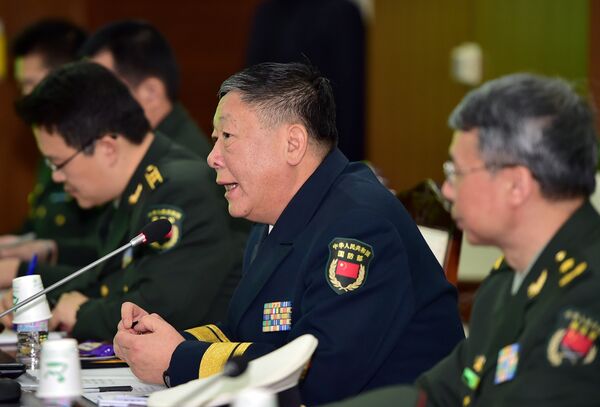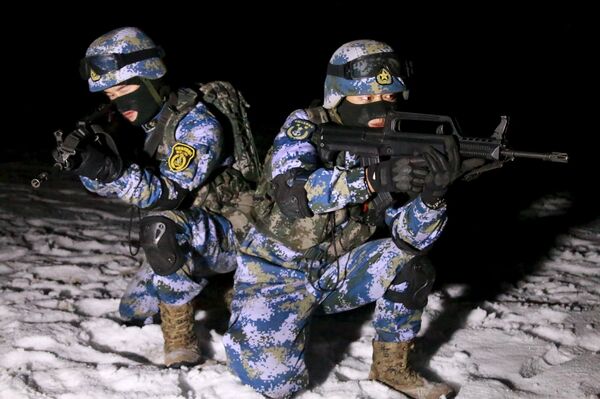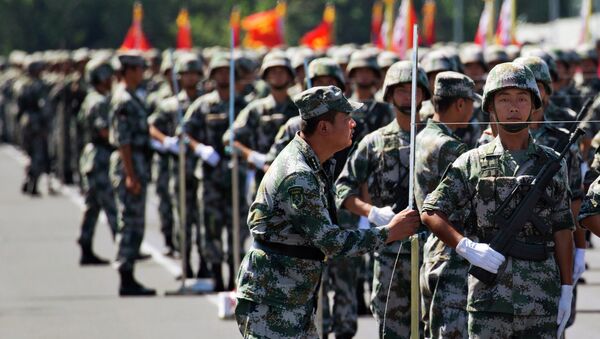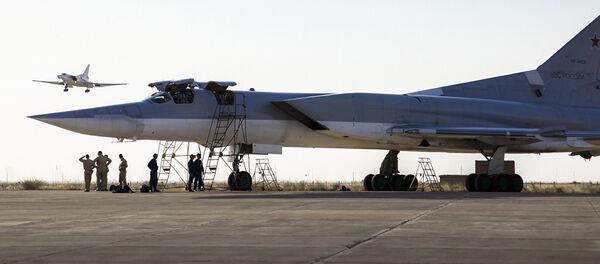In an informative analysis published in the independent geopolitical analysis website Voltairenet.org, Meyssan explained that while details of the Chinese-Syrian military cooperation agreement remain murky, Beijing's motivations for increasing its involvement in the conflict are not.
Rear Admiral Guan's visit to the war-torn country, conducted in his capacity as director of the newly created Office for International Military Cooperation under the powerful Central Military Commission of the Chinese Communist Party, took place as part of Beijing's broader efforts to establish military contacts with nations in the Middle East.
Meeting with Syrian Defense Minister Fahd Jassem al-Freij in mid-August, Guan said that the Chinese and Syrian militaries already have "a traditionally friendly relationship," adding that the Chinese military would be "willing to keep strengthening exchanges and cooperation" with their Syrian counterparts.
Despite the limited nature of this assistance, Meyssan noted that China's moves have nevertheless led to considerable anxiety in Western capitals. And they have reason to be concerned, he added, because "everyone understands that this agreement is hiding something else, since the training of Syrian military medical personnel has been taking place for the last four years, to the point where half of Syria's military doctors have been trained in China."

Therefore, the analyst suggested, "although we do not quite know exactly what has been agreed to, the existence of the agreement in itself marks a strategic shift" in China's strategy. This, he noted, has to do with the fact that for a long time, Beijing, wary of a response from Washington, "has refused to engage in any form of cooperation" with Damascus which the US "might interpret as military aid."
"Thus, China has not only refused to deliver weapons, but also civilian materials needed for war, such as tunnel detectors."
Now, Guan's visit, and the discussion of growing military cooperation between the two countries, may mean that changes are afoot. Russia, Meyssan recalled, had also reached the point of intervening into the Syrian conflict in stages, carrying out negotiations and signing agreements with Damascus long before making the decision in late September 2015 to assist Damascus militarily in the fight against Daesh. Accordingly, the analyst noted, it's logical to ask whether "China too is also preparing to deploy."
"It's probable that the answer to that question will depend on the speed of the US deployment in the South China Sea, and on [any] provocations by Washington's allies in the region."
An ancient civilization with thousands of years of history behind it, "China's interest in Syria dates from Antiquity and the Middle Ages. The Silk Road crossed Central Asia, passing through Palmyra and Damascus before turning toward Tyre and Antioch" (in modern day Lebanon and Turkey).
And while today "there are few traces left of this ancient commercial cooperation, except for the Pagoda still visible in the mosaics of the Umayyad Mosque [the Great Mosque of Damascus]," Chinese President Xi Jinping "has made the restoration of this line of communication (and the creation of a second road through Siberia and Europe) the main objective of his mandate."
Beijing's other main interest, according to Meyssan, is the fight against the so-called Turkistan Islamic Party, an Uyghur group based in Raqqah, Syria which is part of the Jaish al-Fatah terrorist group. The terrorist and militant separatist organization, founded in western China, is a responsible for a string of terrorist attacks in the country's northwestern Xinjiang province, and is operating in Syria alongside the Nusra Front (recently rebranded as the Jabhat Fateh al-Sham) and other extremists, including Daesh.
These militants, the analyst noted, are believed to have sent tens of thousands of militants to Syria in 2014. Accordingly, Meyssan noted, "even more than the Russians, the Chinese need intelligence about this network," and its connections to the Muslim Brotherhood, the CIA and MI6.

"In 2011, [Beijing] believed – erroneously, that the Anglo-Saxons had changed after the attacks of September 11, and that they would now cooperate with the Shanghai Cooperation Organization to fight terror. They now know that Syria is an authentic friend in peace," the analyst concluded.





